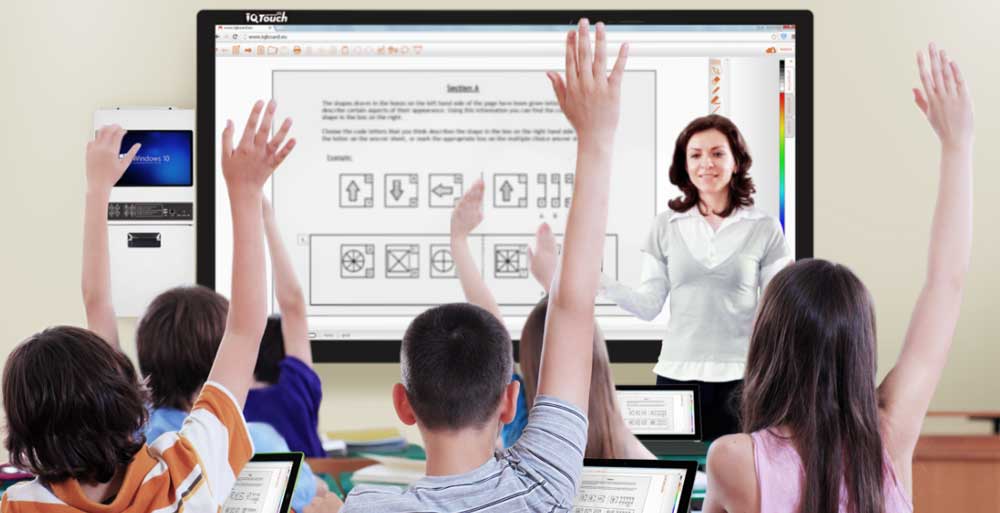Days are gone when investing in classroom technology meant nothing more exciting than choosing which colour of chalk to buy for the board. Now comes to a new age where interactive whiteboard and projection systems have become common place in the classroom, the advancing technological revolution is driving this arena to new heights.

Here in this article we will talk about our top tips for buying the best interactive panels for your classroom.
1. Size
For interactive whiteboard, when choosing the aspect ratio of interactive whiteboard, you need to refer to the projection size of the projector. The size will according to your classroom size.
For LCD flat panel interactive displays, the size of the room should dictate the size of your screen. The basic rule is that the screen should be large enough to allow the students at the back of the class to be able to easily read a 20pt font.
2. Resolution
The resolution defines the sharpness and clarity of any visual panel and is the number of pixels (individual points of colour) contained within the screen. The higher the resolution, the sharper and crisper the image. Some interactive panels are now also available in Ultra High Definition which is referred to in the industry as 4K (3840×2160), such as IQTouch K Series, C Pro, L series etc.
3. Touch points
Touch points really mean a lot to classroom. For example, If an interactive flat panel display has 6 touch points, there can be as many as 6 students at the display, each using a single touch point (one finger or a stylus). Or, 3 students can each use 2 fingers to manipulate and move objects on the display. Now many standard LCD touch panel has 10 touch points or 20touch points at most, such as IQTouch K series.
4. Software
You buy the interactive displays for teaching, so you may want to select software which can actually enable and engage learning,and can provide collaboration opportunities, assessment and integrate with mobile teaching. IQTouch K series are the best example bundle with the software.
5. Installation
You need to make is where in the classroom you are going to mount your interactive panel and the physical size of those who may need to use the screen. Many nursery schools or early year classes make good use of mobile or wall mounted electronic height adjustable brackets for their interactive panels. For senior schools, higher education establishments and training suites, a fixed wall bracket is generally acceptable.